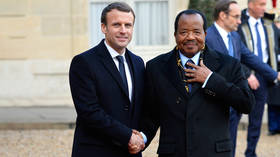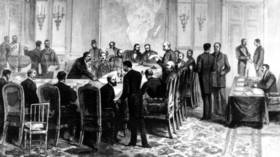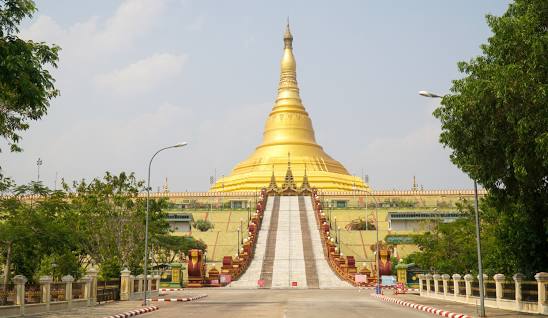..
John Bolton confesses to planning coups
Anneke de Laaf
Facebook
Apparently this is so accepted that Dutch media didn’t bother to report it. I doubt he was the only one or the first, in fact, I know he was not.
“Bolton spoke about participation in the preparation of coup d'état in an interview on CNN. When the journalist suggested that "you don't need to have a brilliant mind" for this, Bolton countered, saying that he "helped with the planning of coups" in other parts of the world and that this requires painstaking work.
Dutch media might not have found this story newsworthy, but several American and foreign newsrooms did, including The Washington Post:
So what coups might John Bolton have been involved in, exactly?
Analysis by Philip Bump
National correspondent
The Washington Post
July 13, 2022 at 12:25 p.m. EDT
Then-national security adviser John Bolton speaks on Oct. 3, 2018, at the White House. (Jabin Botsford/The Washington Post)
Tuesday’s hearing of the House committee investigating the Jan. 6, 2021, riot at the Capitol led to a remarkable admission: A member of President Donald Trump’s senior team confessed to having plotted a coup.
But not the attempted coup that occurred on Jan. 6, and not a member of Trump’s team at that point.
The admission came from former national security adviser John Bolton, and it came with the caveat that the coups he had planned were targeted at foreign countries.
Bolton made the surprising claim during an interview Tuesday with CNN’s Jake Tapper. Bolton was fired by Trump in late 2019, just before the country learned of the president’s efforts to pressure Ukraine into announcing a probe of Joe Biden. Since leaving Trump’s team, Bolton has been a fervent critic of his former boss and vice versa.
In the interview, Bolton objected to the idea that the events of Jan. 6 were part of “a carefully planned coup d’etat aimed at the Constitution.” His reasoning was personal: Trump was simply too much of a mess to construct anything that organized.
Tapper disagreed, saying that “one doesn’t have to be brilliant to attempt a coup.”
Then, Bolton’s admission.
“I disagree with that. As somebody who has helped plan coups d’etat, not here, but other places, it takes a lot of work,” Bolton said. “And that’s not what he did.”
We can set aside the idea that Trump “didn’t do a lot of work” as he tried to retain power after losing the 2020 election. This is subjective, certainly, although one could make a robust case that Trump invested a tremendous amount of time and energy into doing precisely that. Let’s instead just consider what Bolton is blithely copping to here: helping to try to overthrow foreign leaders. He made the admission, it seems, largely so that he could contrast his own brilliance with Trump’s dopiness, but he made the admission, nonetheless.
Tapper, of course, had a follow-up question. It ran along the lines of: Uh, where?
“I wrote about Venezuela in the book, and it turned out not to be successful,” Bolton said. “Not that we had all that much to do with it, but I saw what it took for an opposition to try to overturn an illegally elected president.”
“I feel like there’s other stuff you’re not telling me,” Tapper replied.
“I’m sure there is,” Bolton said.
So let’s assume that there is “other stuff,” no matter how useful it is to Bolton’s public presentation that he be seen as a powerful behind-the-scenes actor. When and where might Bolton have had his fingers in foreign coup events?
The Cline Center at the University of Illinois tracks coup attempts (including the one in the United States on Jan. 6). Since Bolton joined government during the Reagan administration in 1982, there have been more than 350 coup attempts around the world, nearly 150 of them successful. That includes events (such as Jan. 6) that one might not think of as a coup attempt — like the U.S.-led toppling of the government in Afghanistan after the Sept. 11, 2001, terrorist attacks.
Of those 350-plus coup attempts, 191 occurred when Bolton held a position with the U.S. government. (We will assume that Bolton was not involved in attempted coups while outside government service, although, of course, who knows.) That figure, however, includes coup attempts that occurred when Bolton was in positions that one might assume were less coup-adjacent, like serving as an assistant administrator at the U.S. Agency for International Development (USAID) or as an assistant attorney general in the Justice Department. There were 131 coup attempts internationally that occurred when Bolton served in the State Department, as U.N. ambassador or as Trump’s national security adviser — the tenure during which the Venezuela coup attempt unfolded.
Then Bolton joined State. In October 1989, there was an attempt to oust Panamanian dictator Manuel Antonio Noriega. He was removed from power following an American invasion that December. In 1992, a coup in Afghanistan similarly led to the ouster of the country’s leader, a longtime ally of the Soviet Union. There were also coup attempts in a number of other countries while Bolton served under President George H.W. Bush, including the Philippines, Azerbaijan, Bangladesh and Romania, where General Secretary Nicolae Ceausescu was ousted.
Bolton returned to government under George W. Bush. Besides the invasion of Afghanistan, perhaps the most significant coup tracked by the Cline Center’s Coup D'état Project was the March 2004 removal of Jean-Bertrand Aristide as president of Haiti. Aristide blamed American actors for the coup. But other countries saw similar attempts, including the November 2003 Rose Revolution in Georgia that ousted the country’s Soviet-allied leader, Eduard Shevardnadze.
In 2018, Bolton became Trump’s third national security adviser. It was during this period that rebels tried more than once to remove Venezuelan leader Nicolás Maduro from power, unsuccessfully. Bolton’s attempt to distance himself from the planning of those efforts — “I saw what it took” to effect an overthrow — does little to diminish American involvement.
This, again, was the only coup attempt to which Bolton admitted involvement, despite his telling Tapper that he had helped plan similar insurrections. (In an interview with Newsmax, Bolton dismissed questions about his comments as being a function of “snowflakes out there who don’t understand what you need to do to protect the United States.”) Perhaps he was puffing himself up at Trump’s expense, casting himself as a brilliant strategist who had deigned to work for the fumbling Trump. Or perhaps one of those other 131 coup attempts that occurred while Bolton was in government bear, however faintly, his fingerprints.
===========================================================================================
In Albania, divers fish for WWII bombs
Briseida MEMA
Wed, July 13, 2022 at 11:51 PM·2 min read
Under a cliff in Vlora bay, one of the most beautiful sites on the Albanian Riviera, a diver emerges from the water carrying an artillery shell which he carefully places on the pebbly beach.
Beneath the crystal-clear water of the Adriatic, shells and grenades dating back to World War II rust on the seabed, polluting the water and posing a deadly threat to life.
Aboard the "Pluton" diving support vessel, a group of some 10 French and Albanian de-mining divers are on a joint mission to find and remove the munitions -- but nobody knows how many still remain.
In less than two hours, the divers collected an impressive 85 pieces of ammunition, which were likely deliberately thrown into the sea by occupying Italian troops over seven decades ago.
"It's joint work with the Albanian navy, which knows the site better than we do," Captain Aymeric Barazer de Lannurien, commander of the French contingent, told AFP.
Specialists recovered a total of 310 devices during last year's joint Franco-Albanian effort.
Barazer de Lannurien said most of the shells found were artillery shells, lodged between rocks on the seabed.
- 'One or two grenades' -
"We found one or two grenades that were on the bottom between the rocks, easily accessible to the population (that) could be dangerous for swimmers," he recalled of last year's mission.
This time around, the team said they recovered mortars and shells with calibres ranging from 20 mm to 155 mm.
While there are no official estimates of the quantities of submerged munitions, experts estimate that at least 20 World War II wrecks are located near Albania's Adriatic coast.
The teams are well-versed in handling the potentially lethal cast-offs, but an ambulance is parked nearby just in case.
Divers pass the explosive devices between them before carefully lining them up on the beach, reminders of past conflicts.
Albanian troops then collect the shells and destroy them at a military base in the capital Tirana.
The teams face not only the ever-present risk of detonation, but also choppy seas and scorching heat.
U.S. to ship another $550M security package to Ukraine
By Darryl Coote
Among the package the United States announced Monday for Ukraine included ammunition for High Mobility Artillery Rocket Systems. Photo courtesy of Ukrainian Minister of Defense Oleksii Reznikov/Twitter
Aug. 1 (UPI) -- The United States on Monday announced it was shipping Ukraine an additional $550 million in weapons to aid the war-torn country in its fight against Russia.
The drawdown of weapons from the Department of Defense stockpile for Ukraine is the 17th since August and equals more than $8 billion in U.S. funded-arms for Kyiv since Russia invaded on Feb. 24.
Biden continues to transfer American dollars from taxpayers to weapons manufacturers. $8bn works out to about $25 per person, or $55 per taxpayer.
The security package was authorized by U.S. President Joe Biden on Monday, with top-ranking U.S. brass informing their Ukrainian counterparts of the decision, National Security Council Coordinator for Strategic Communications John Kirby said during a press briefing in Washington, D.C.
The Department of Defense published a list detailing the security package as containing 75,000 rounds of 155mm artillery ammunition and additional ammunition for High Mobility Artillery Rocket Systems.
"To meet its evolving battlefield requirements, the United States will continue to work with its Allies and partners to provide Ukraine with key capabilities," it said.
Of course, the real 'key capability' is to keep the proxy war going which will bring great destruction upon Ukraine and death and destruction upon the population.
The package was announced as Ukraine has been asking allies for additional air defense support systems including last month when Ukrainian first lady Olena Zelenska told Congress in Washington, D.C, that it requires them to stop Russia's terror.
"I'm asking for air defense systems in order for rockets not to kill children in their strollers, in order for rockets not to destroy children's rooms and kill entire families," she told the lawmakers.
Am I the only one who sees the madness in that statement? She wants to stop rockets from killing children and families, so she asks for more rockets from the USA. As if only Russian rockets are capable of killing civilians.
The same day the package was unveiled four previously announced HIMARS from the United States arrived in Ukraine, Kyiv's minister of defense, Oleksii Reznikov, tweeted.
"We have proven to be smart operators of this weapon," he said. "The sound of the [HIMARS] volley has become a top hit ... of this summer at the front line!"
Sen. Rob Portman, R-Ohio, who has been calling for additional weapons for Ukraine, called the package and the arrival of the HIMARS "good news" for Kyiv, stating the systems have degraded Russia's ability to make war.
"HIMARS have enabled Ukrainian forces to reach behind Russian lines to strike critical logistics nodes and command & control centers," he tweeted. "This has frustrated Russia's attempts to continue its brutal invasion.
"I urge the admin to continue sending more HIMARS and ammo to [Ukraine]."
For his leadership and "robust" support, Ukrainian President Volodymyr Zelensky thanked Biden in a statement.
"Together, we are defending values of freedom common to both [Ukraine] & [the United States]," Zelensky said. "New defense assistance package is bringing us closer to victory."
The announcement came as the first shipment of Ukrainian grain was permitted to leave the Russian-blockaded city of Odessa amid the war.

Guterres: Humanity is one mistake away from nuclear annihilation
By Darryl Coote
U.N. Secretary-General Antonio Guterres warned world leaders on Monday in New York that humanity is
one mistake away from nuclear annihilation. Photo by John Angelillo/UPI | License Photo
Aug. 2 (UPI) -- The threat the world currently faces has not been seen since the height of the Cold War, the head of the United Nations said while warning "humanity is one misunderstanding, one miscalculation away from nuclear annihilation."
U.N. Secretary-General Antonio Guterres made the warning Monday during a speech to open a conference on the Non-Proliferation Treaty, the landmark 1970 pact that's been joined by 191 governments vowing to prevent the spread of atomic arms.
The 10th Review Conference of the Parties to the Treaty on the Non-Proliferation of Nuclear Weapons runs until Aug. 26 when the implementation of the agreement will be reviewed.
During his remarks, Guterres said the world needs this treaty now as much as ever before, citing Russia's invasion of Ukraine, North Korea's development of its nuclear arsenal and tensions in the Middle East.
"The clouds that parted following the end of the Cold War are gathering once more. We have been extraordinarily lucky so far. But luck is not a strategy," he said. "Nor is it a shield from geopolitical tensions boiling over into nuclear conflict."
He said the conference is being held at a time when the risks of proliferation are growing, protections against escalation are weakening and crisis "with nuclear undertones" are festering.
"That is why this Review Conference is so important," he said. "It's an opportunity to hammer-out the measures that will help avoid certain disaster."
Fears of nuclear war have grown since Russia invaded Ukraine in late February. Amid the conflict, Russia has repeatedly suggested that it would retaliate against intervening NATO nations in its invasion with nuclear arms as well as having turned Europe's largest nuclear power plant, Ukraine's Zaporizhzhia, into a military base knowing that an attack against it would risk catastrophe.
U.S. Secretary of State Antony Blinken accused Moscow during his remarks at the conference of engaging in "reckless, dangerous nuclear saber-rattling" and of taking the notion of a human shield "to an entirely different and horrific level."
Blinken added that Russia's war in Ukraine is "directly relevant" to what brings them to this conference.
"Its actions are also contrary to the assurances that it provided to Ukraine in 1994" that included handing over its sovereignty and independence in exchange for giving up its nuclear weapons it inherited when the Soviet Union dissolved, he said.
"What message does this send to any country around the world that may think that it needs to have nuclear weapons to protect, to defend, to deter aggression against its sovereignty and independence? The worst possible message," he said.
Russia, which is among the signatories of the treaty, rejected the accusations, with its foreign ministry tweeting that it took over the Zaporizhzhia plant in order to protect it from "nationalist formations & foreign mercenaries."
Russian President Vladimir Putin also sent a letter of greetings to the conference, stating Moscow "consistently follows the letter and spirit of the Treaty."
"We believe that a nuclear war cannot be won and must never be fought, and we stand for equal and indivisible security for all members of the world community," Putin wrote.
===========================================================================================























